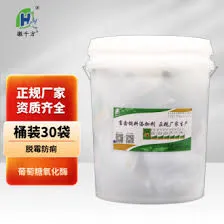
Ago . 22, 2024 01:26 Back to list
Understanding Custom Approaches to Coccidiosis Management in Poultry Production
Custom Coccidiosis in Chickens Understanding the Impact and Management Strategies
Coccidiosis is a widely recognized parasitic disease that affects chickens and other poultry species, resulting in significant economic losses in the poultry industry. The disease is caused by protozoan parasites of the genus Eimeria, which infect the intestinal lining of chickens. With the rise of custom farming practices and the need for sustainable poultry production, understanding coccidiosis and implementing effective management strategies is more crucial than ever.
Coccidiosis is transmitted through the ingestion of oocysts, which are the infective stage of Eimeria. These oocysts can survive in various environmental conditions, contributing to their persistence on farms. Once ingested, they invade the intestinal epithelium, leading to tissue damage, inflammation, and clinical symptoms such as diarrhea, dehydration, and poor weight gain. In severe cases, coccidiosis can result in high mortality rates, particularly in young chicks.
Custom Coccidiosis in Chickens Understanding the Impact and Management Strategies
One effective method for managing coccidiosis is the use of coccidiostats—medications that inhibit the growth and reproduction of Eimeria species. These can be included in the feed or water of the chicks as part of a comprehensive management program. However, reliance on chemical treatments can lead to the development of resistant strains of Eimeria. Therefore, a more integrated approach that combines medication with other management practices is essential.
custom coccidiosis in chick

To mitigate the risk of coccidiosis, proper management practices should be tailored to the specific needs of the flock. This includes maintaining optimal sanitation, managing litter quality, and implementing biosecurity measures. Regular cleaning and disinfection of housing facilities can help reduce the environmental load of oocysts, while managing litter to ensure proper ventilation and dryness can minimize the chances of infection. Additionally, rotating grazing areas and employing careful flock management techniques can help break the lifecycle of the parasite.
Vaccination against coccidiosis has also gained attention as an innovative solution for poultry farmers. Live vaccines, which introduce attenuated strains of Eimeria, can stimulate an immune response, offering protection against subsequent infections. This preventive measure not only reduces the incidence of coccidiosis but also promotes the overall health and productivity of the flock.
Moreover, dietary management plays a vital role in boosting the chicks' immune system. A well-balanced diet rich in vitamins, minerals, and other essential nutrients can enhance the overall health of the birds, making them less susceptible to infections. Including probiotics in their diet may also promote gut health and bolster the immune response against coccidiosis.
In conclusion, custom coccidiosis management in chickens requires a multifaceted approach that combines chemical treatments, biosecurity measures, vaccination, and proper nutrition. By understanding the biology of Eimeria and implementing tailored strategies, poultry farmers can mitigate the impact of coccidiosis on their flocks. This not only ensures the health and welfare of the chickens but also contributes to the sustainability and profitability of poultry production. As the industry continues to evolve, ongoing research and adaptation of management practices will be essential to combat this persistent and challenging disease.
-
Top Hemoglobinuria Manufacturer & Supplier Reliable Hemoglobinuria Factory Solutions
NewsJun.24,2025
-
Premium Honeysuckle Products - Leading Honeysuckle Manufacturer & Supplier Factory
NewsJun.10,2025
-
Pulmonary Edema Solutions from Leading Manufacturer & Supplier Reliable Factory Price
NewsJun.10,2025
-
Red Eyes - Leading Red Eyes Manufacturer & Supplier, Premium Quality Factory Price
NewsJun.10,2025
-
Broiler Ascites Syndrome Solutions Top Manufacturers
NewsJun.10,2025
-
Premium Amoxicillin Suppliers Reliable Biomox Mexican Factories
NewsJun.10,2025




